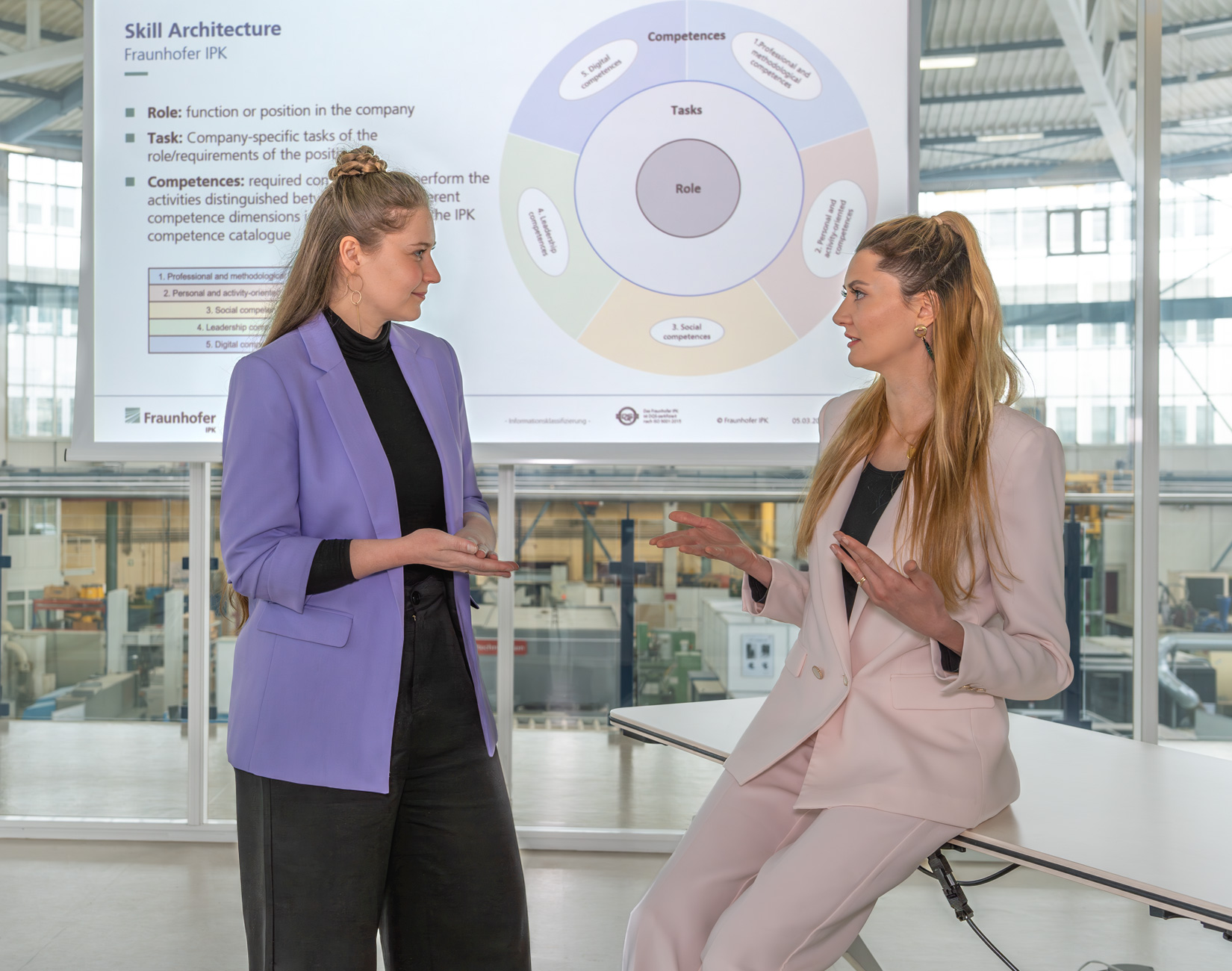How can KIRA Pro help?
Kretschmer:
The project takes two approaches. Firstly, we are developing a learning platform that SMEs can use to train their employees cost-effectively. Here we are also taking into account the fact that the way of learning is changing – instead of sending someone to a training course, people now tend to use micro-learning units and new learning formats such as podcasts. But which ones? After all, there is a jungle of offerings out there. With the help of the learning platform, we are trying to make that manageable for SMEs. The second approach is to continuously update employees' job profiles. This way, we can develop targeted skills (e.g. digitalization skills) that make companies more resilient, even in times of crisis.
What does that mean for companies?
Singer-Coudoux:
We are bringing together the strategic level of the company – i.e. questions around the direction of development – with the operational level, i.e. the training of individual employees. What skills do employees need, for example, when a new product is being launched? We are developing a learning path generator that uses AI to compare employees' actual skills with the targeted ones and creates a learning path with a tailored selection of learning content. The system brings together four points: the company's requirements, the employees' personal development goals, their individual skill level and the available range of training options.
Kretschmer:
A point that I find particularly fascinating and that is becoming increasingly important, especially in challenging times when people feel left behind, is this: KIRA Pro can help to strengthen participation – to which, after all, education and continued training is a key element. By empowering people to work in new professions, we are enabling participation and stabilizing the democratic society.
 Fraunhofer Institute for Production Systems and Design Technology
Fraunhofer Institute for Production Systems and Design Technology